第3章 Chapter One(3)
Charles could not go on like this. Madame Bovary took strong steps. Ashamed, or rather tired out, Monsieur Bovary gave in without a struggle, and they waited one year longer, so that the lad should take his first communion.
Six months more passed, and the year after Charles was finally sent to school at Rouen, where his father took him towards the end of October, at the time of the St. Romain fair.
It would now be impossible for any of us to remember anything about him. He was a youth of even temperament, who played in playtime, worked in school-hours, was attentive in class, slept well in the dormitory, and ate well in the refectory. He had in loco parentis* a wholesale ironmonger in the Rue Ganterie, who took him out once a month on Sundays after his shop was shut, sent him for a walk on the quay to look at the boats, and then brought him back to college at seven o'clock before supper. Every Thursday evening he wrote a long letter to his mother with red ink and three wafers; then he went over his history note-books, or read an old volume of "Anarchasis" that was knocking about the study. When he went for walks he talked to the servant, who, like himself, came from the country.
*In place of a parent.
By dint of hard work he kept always about the middle of the class; once even he got a certificate in natural history. But at the end of his third year his parents withdrew him from the school to make him study medicine, convinced that he could even take his degree by himself.
His mother chose a room for him on the fourth floor of a dyer's she knew, overlooking the Eau-de-Robec. She made arrangements for his board, got him furniture, table and two chairs, sent home for an old cherry-tree bedstead, and bought besides a small cast-iron stove with the supply of wood that was to warm the poor child.
Then at the end of a week she departed, after a thousand injunctions to be good now that he was going to be left to himself.
The syllabus that he read on the notice-board stunned him; lectures on anatomy, lectures on pathology, lectures on physiology, lectures on pharmacy, lectures on botany and clinical medicine, and therapeutics, without counting hygiene and materia medica--all names of whose etymologies he was ignorant, and that were to him as so many doors to sanctuaries filled with magnificent darkness.
He understood nothing of it all; it was all very well to listen--he did not follow. Still he worked; he had bound note-books, he attended all the courses, never missed a single lecture. He did his little daily task like a mill-horse, who goes round and round with his eyes bandaged, not knowing what work he is doing.
To spare him expense his mother sent him every week by the carrier a piece of veal baked in the oven, with which he lunched when he came back from the hospital, while he sat kicking his feet against the wall. After this he had to run off to lectures, to the operation-room, to the hospital, and return to his home at the other end of the town. In the evening, after the poor dinner of his landlord, he went back to his room and set to work again in his wet clothes, which smoked as he sat in front of the hot stove.